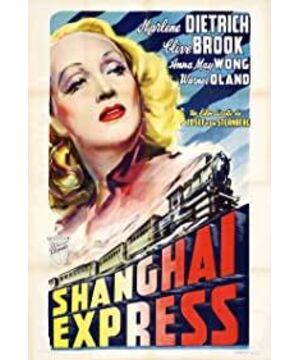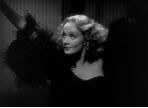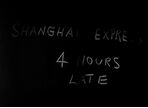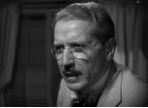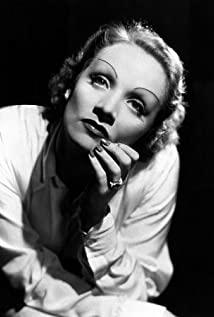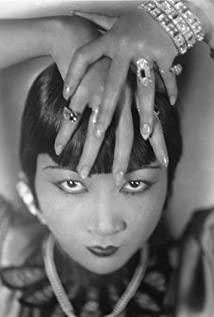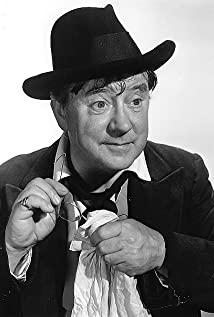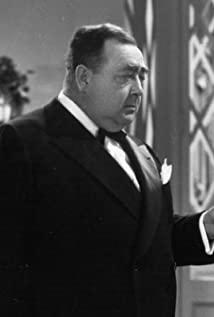Out of interest in Anna May Huang, I chose one night to finish watching "Shanghai Express" without fast-forwarding. Filmed in 1931, the film stars Clive Brook and Marlene Dietrich as the film's male and female protagonists, with Anna May Wong as the film's third character. The background of the story is China during the civil war in 1931. In the film, photographer Huang Zongzhan used many of the shots he shot during his trip to China in 1928 to make the film more realistic.
The main characters are-
Shanghai Lily: A "notorious coastal dweller" who "destroyed at least a dozen men in China", but still deeply in love with an old lover, Harvey.
Donald Harvey: Royal MD, used to be a couple with Shanghai Lily and separated because of distrust. Self-esteem is high, but in fact it is moral.
Hui Fei: Chinese prostitute. Mature and sophisticated, neither humble nor arrogant. See through the hypocrisy of European racists and despise them.
Mrs. Hagerty: There's a boarding house in Shanghai, old-fashioned, pretentious and stupid.
Pastor Carmichael: Doctor of Theology, initially disgusted with Shanghai Lily and Hui Fei, thinking that "such women should not be allowed to get in the car, I think the gods will object to their conduct." But after seeing Shanghai Lily praying for Harvey all night, her outlook changed.
Mr. Baum: German citizen, pedantic and stubborn, always insisting that "I am a patient and can't breathe". In fact, he is engaged in opium trafficking in China.
Henry Zhang: The leader of the rebel army (revolutionary army), a mixed-race son of a white mother and a Chinese father, who is greedy for money and lustful. View kidnapped Harvey and made an exchange with the Chinese government in exchange for his own safety and status, and was eventually killed by Huifei in a sneak attack. (Henry Zhang's image is a smear of Chinese people and revolutionaries).
The plot of the story will not be repeated, it is not a very innovative American romance film - the hero and heroine finally reunited after hardships and dangers, Happy ending. Here I mainly want to talk about the two female characters in the film that I find interesting. When I think of where I wrote it, the logic is unclear + kindergarten writing, I hope to bear with it. (The worst thing is, you can also receive stills. Anyway, I manually took some pictures myself)
1. Similarities and differences between Hui Fei and Shanghai Lily
Commonality:
1. They are all prostitutes
Women in body-trading careers are often looked down upon. Pastor Carmichael said at the beginning, "Such women should not be allowed to get in the car...their souls are depraved." In most of the time in the film, Hui Fei and Shanghai Lily are in the same box, and the curtains are drawn. In this way, it seems, they are separated from other people in "serious" occupations.
2. Real and brave
Compared with the love scene with Harvey, the relationship between Shanghai Lily and Hui Fei seems to be more exciting. Their experience as prostitutes makes them see through the warmth of human feelings. Compared with the fake Mrs. Hagerty, they are calm and restrained. Compared with the indifferent and hypocritical Captain Harvey, they seem to be indifferent but have good intentions. Shanghai Lily was willing to pray and sacrifice herself all night for Harvey, even if she was misunderstood by Harvey, she still did not regret it; Huifei was the first person to take action after Mr. Baum was injured. .
(When Mrs. Hagerty handed them their business cards and pretended that her apartment was "specialized for the most respected people," Shanghai Lily scorned to expose her lies, and Whifey quipped, "I didn't know it was in your apartment. What is the respectable standard in the
Although the character setting of this film is the same as that of other Hollywood films, women are either beautiful and sinful images (“Shanghai Lily ruined at least a dozen men”) or victims (Hui Fei was raped by Zhang), but from another perspective, what are they? Not a savior: Shanghai Lily's compromise allows Captain Harvey to escape safely; Hui Fei's brave determination allows Zhang to end his threat to the safety of train crews.
Differences: Racial Differences
Although they are all prostitutes, the attitudes of people on the train towards Hui Fei, a Chinese prostitute, and the European "La Traviata" Shanghai Lily are also far different. Compared to Shanghai Lily, the non-white Whiffy received greater malice on the train (Anna Wong performed disdain for Pastor Carmichael's remarks).
It goes without saying that the male protagonist Harvey has feelings for Shanghai Lily. When Pastor Carmichael talked about Shanghai Lily's bad deeds, Harvey dismissed it and defended Shanghai Lily.
When Shanghai Lily brought Hui Fei to invite Harvey to have dinner together, Harvey seemed polite, but ruthlessly refused Hui Fei's request to shake hands. Shanghai Lily on the side saw it, and joked after Hui Fei left, "You are too hurtful", Harvey was noncommittal, thinking that a woman like Hui Fei was not worthy of being his friend; Shanghai Lily also said that she and Hui Fei were walking together Together just out of good intentions.
In the middle of the film, Henry Zhang hijacks the train and detains Captain Harvey, who is going to treat the Governor of Shanghai, as a bargaining chip to confront the government. Then, Hui Fei was arrested and raped, in return for the hatred of being rejected by Hui Fei in the front (Although Hui Fei is a prostitute, she is not willing to be with someone like Zhang).
Ironically, when Shanghai Lily came to negotiate with Zhang and try to save Harvey, Zhang expressed his admiration for her, saying "I will fall in love with a woman like you". When Shanghai Lily decided to commit Zhang in exchange for Harvey's freedom, and used his reputation as a guarantee, Zhang said, "I believe in you who are guaranteed by your reputation." Whether Zhang believes in Shanghai Lily's reputation or her white European identity and appearance is a matter of opinion.
In fact, jumping out of the plot of the film, the dresses of the two female characters are also distinctly different. In order to highlight the beauty of Shanghai Lily played by Marlene Dietrich, Shanghai Lily always wears exquisite dress suits or gorgeous kimonos. The exquisite hairstyle and the looming beautiful face under the veil create a breathtaking and Wifey always wears thick bangs and a simple dark long dress (Anna May Wong's costume in this film) much rougher than her usual costume).
2. Anna May Wong and Hui Fei
In fact, in addition to the costumes, the two actresses were paid far differently in Shanghai Express: Marlene Dietrich was paid $78,166, and Anna May Huang was less than one-tenth of her pay. $6000. Before the film was made, Anna May Wong had returned from a prestigious career in Europe, but had yet to land a satisfactory role on stage and screen in the United States. She was about to leave for Europe again, but Paramount kept her with the big-budget movie "Shanghai Express." Although Anna May Wong's talent is still deliberately suppressed by Hollywood in terms of screen appearance and remuneration, she is still appreciated for her great personal charm and understanding and interpretation of the role.
The character of Whiffy is in some ways similar to Anna May Wong herself. Hui Fei is smart and kind, but as a Chinese prostitute, she will not be respected by people; Anna May Huang is beautiful and intelligent, but as a Chinese American actress, white male stars and directors only want to have an affair with her, and Chinese men are disrespectful to her but far away Of. In the film, people envy Hui Fei for killing Zhang to win the $20,000 prize, but no one cares about her pain and anger after being defiled; in reality, people envy Anna May Huang as a Chinese actress who has won a place in Hollywood, but few people are willing to go. Learn about the disproportionate effort she puts into it.
At the end of the film, Hui Fei left alone in the happy ending in which the male and female protagonists embraced passionately, and Anna May Huang gradually faded out of the film circle in the new era after World War II. Her tombstone has only her name, no date and no epitaph.
references:
Hao Jisi: Anna May Huang: From Laundry Daughter to Hollywood Legend, translated by Wang Xu, Li Wenshuo, Yang Changyun, Beijing: Beijing United Publishing Company, 2016, pp. 123-124, 129.
View more about Shanghai Express reviews


